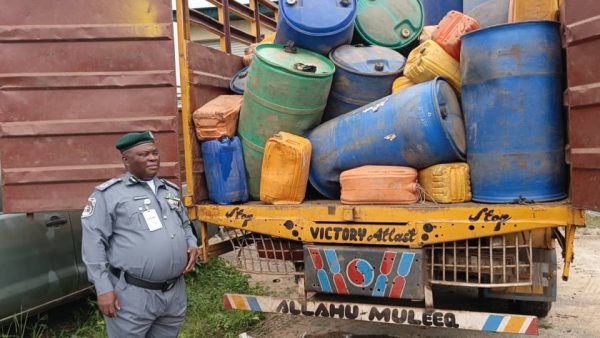Exporters, importers’ woes worsening at ports, laments LCCI

Port operations at Apapa and Tincan ports have worsened the plight of many importers, exporters, traders, and manufacturers as movement in and out of the ports remain a challenge, the Lagos Chamber of Commerce and Industry said on Tuesday.
The President, LCCI, Mrs Toki Mabogunje, at the chamber’s quarterly press conference on the state of the economy, said the burdensome process of cargo clearing at the ports and the attendant extortions continued to stifle the productivity of the real economy.
She said, “Haulage fees have skyrocketed due to the cumbersome ports and document processes, which have made port users incur more costs.
“Outside the ports, manufacturers and other importers face serious challenges in conveying their cargo from ports to warehouses due to multiple checkpoints and traffic gridlock.”
Mabogunje noted that despite series of interventions by the Federal Government, persistent gridlock in accessing port facilities and perennial congestions at the ports had remained a recurring theme in the business environment.
She said, “More worrisome are the issues around lack of a credible framework for dispute resolution on import classification and valuation, presence of several agencies with duplicated roles, etc. Inadequate cargo handling facilities is also an issue of concern.
“The Lagos Chamber calls for swift intervention of the government in the identified areas. There is a need to accelerate efforts in procuring electronic scanners to ease the rigorous process of consignment clearance.”
She said while the Federal Government had done well in developing rail infrastructure, there was a need to have an effective multi-modal transport infrastructure around ports to ease pressure on road infrastructure.
Mabogunje said the country’s recovery prospects this year would be dependent on effective management of the COVID-19 pandemic locally and globally, widespread vaccine rollout, direction of global oil market and quality of fiscal, monetary, trade and regulatory policies.
According to her, accelerating the pace of economic recovery requires fiscal and monetary authorities to be well coordinated to promote growth-enhancing and confidence-building policies that would encourage more private capital inflows into the economy.
“Investment-led growth strategy is critical for inclusive and sustainable economic growth. Strong commitment to key reforms will not only boost output recovery but will also put the nation on a path of macroeconomic stability,” she said.
The LCCI boss also expressed concern over the Federal Government’s plan to finance the fiscal deficit of N5.6tn in the 2021 budget largely through new borrowings of N4.68tn from domestic and external sources.
She said, “We are bothered about the mounting public debt and the increasing pressure of debt servicing on the nation’s finances. It is a threat to our medium-term fiscal stability.
“Resort to borrowing from Central Bank of Nigeria’s financing through ways and means to bridge budget shortfalls poses a major risk to macroeconomic stability. Where possible, the option of equity financing of some capital projects should be explored.”
Mabogunje said the creation of an enabling business environment must be at the forefront of government’s revenue mobilisation strategies this year.
She said the Federal Government should slow down in mounting pressure on revenue-generating agencies to achieve revenue targets.
“Emphasis on revenue generation propels such agencies to focus solely on revenue to the detriment of their core mandate of facilitating investment growth and this has gross implications for the ease of doing business in the country,” she added.
According to her, there is a need for policymakers to formulate and implement policies that facilitate business continuity, particularly at this time when business operators are confronted with disruptions associated with a new wave of the coronavirus pandemic.







